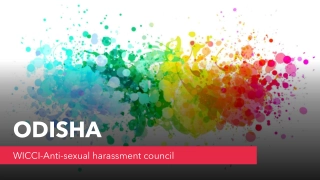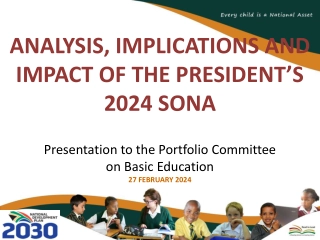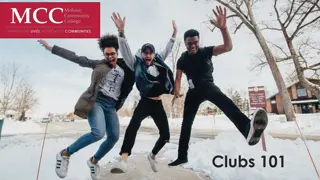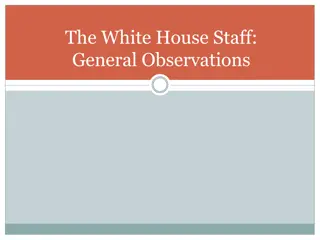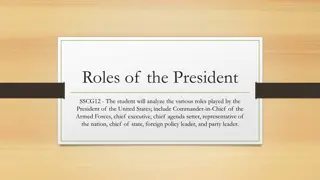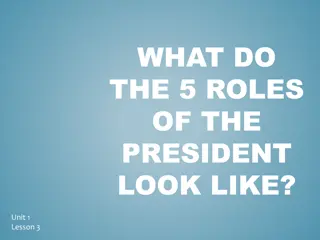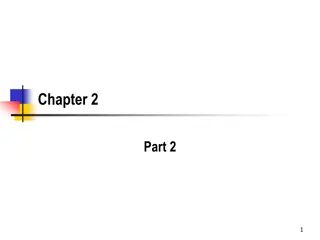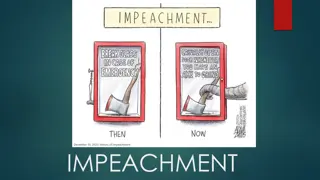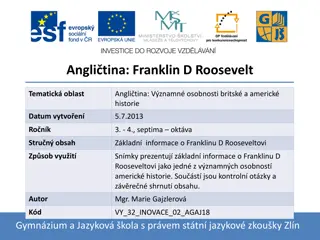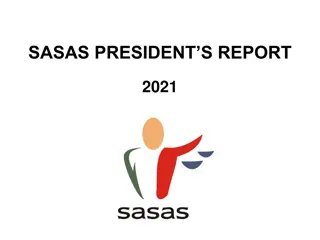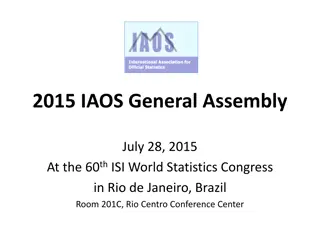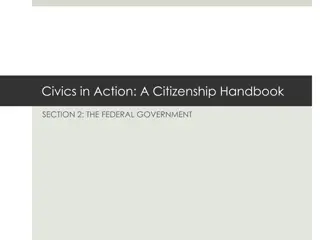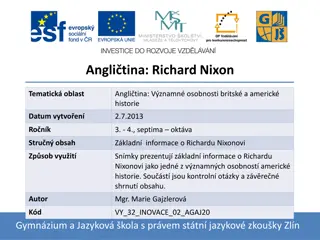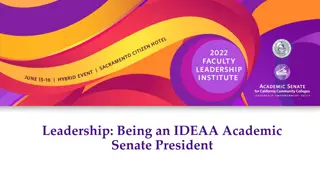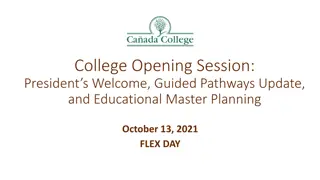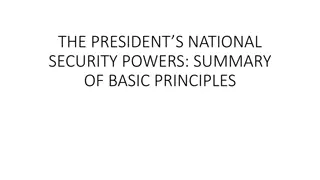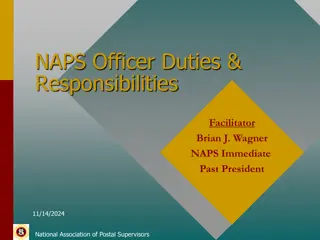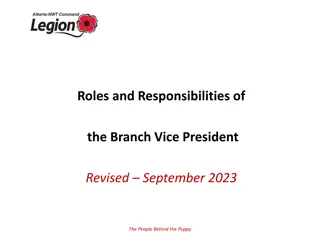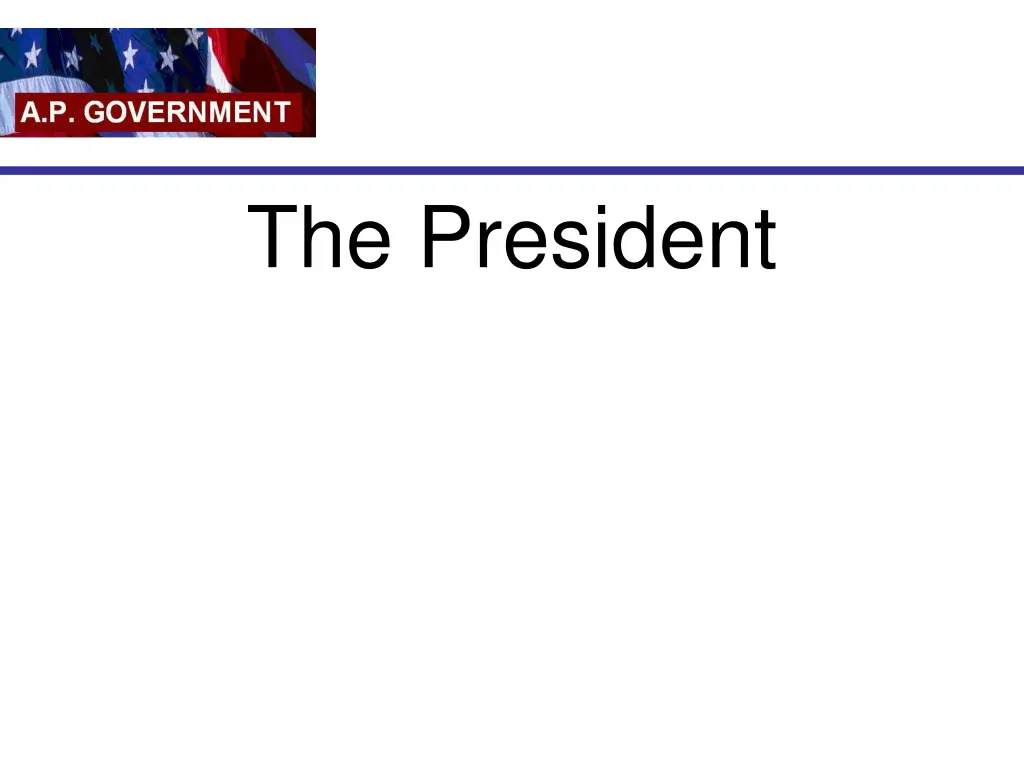
Insights on Presidential Power and Influence Over Time
Explore the evolving role of US Presidents and their impact on American society. From moral questions to constitutional limitations, dive into the complexities of presidential authority and public perception throughout history. Discover how individual personalities, party dynamics, and policy actions shape the presidency in this thought-provoking discussion.
Uploaded on | 0 Views
Download Presentation

Please find below an Image/Link to download the presentation.
The content on the website is provided AS IS for your information and personal use only. It may not be sold, licensed, or shared on other websites without obtaining consent from the author. If you encounter any issues during the download, it is possible that the publisher has removed the file from their server.
You are allowed to download the files provided on this website for personal or commercial use, subject to the condition that they are used lawfully. All files are the property of their respective owners.
The content on the website is provided AS IS for your information and personal use only. It may not be sold, licensed, or shared on other websites without obtaining consent from the author.
E N D
Presentation Transcript
Obama Are individual personalities now more important than parties?
Bush Can the President control public discussion?
Clinton, Reagan, Nixon Does a president have to be moral in order to be a good president?
Nixon Do Americans need a President to have trustworthy character?
Eisenhower Must the modern President always be involved in everything or have a solution for everything?
Franklin Delano Roosevelt What role does confidence in the President have on American morale?
FDR Does a lot of action and policy creation make a President great ? Can a President be great if not much is changed during their Presidency?
Constitutional Requirements Qualifications Art. II natural-born citizen 14 years of US residency 35 years of age THAT S IT!!!
Constitutional Powers Powers/duties are very limited executive power enact/enforce law 1. Military Power 2. Diplomatic Power 3. Appointment Power 4. Veto Power
Military Power Commander in Chief (civilian control) Prez can send armed forces abroad Congress has not declared war since 12/8/1941 Korea, Vietnam, Iraq? all Constitutional War Powers Resolution, 1973 Prez must report to Congress within 48 hours after deployment If Congress does not OK in 60 days, must withdraw Check on president, attempt to limit president
Diplomatic Power Create treaties with foreign nations with Senate permission, 2/3 Senate approval (advice and consent) Executive agreement not permission needed, deal between heads of state, not binding to next administration Diplomatic Recognition power to officially recognize foreign gov as legit Ex. 1917-1933 USSR not recognized Ex. 1949-1970s China not recognized
Appointment Power Power to appoint ambassadors, public officers, and Supreme Court Judges with Senate approval (advice and consent) Civil Service most gov jobs under executive filled based on merit system Harriet Miers John Bolton John Roberts
Veto Power Veto return the bill to house it originated (no action within 10 days bill becomes law)
Strengthening the Presidency Washington set precedent for future Jackson frequent use of veto power Lincoln Commander and Chief to new levels of power during the Civil War FDR huge influence on policy with New Deal, checked by Supreme Court
Executive privilege The right to privacy of conversation between advisors and prez Why? 1. Separation of powers prevents branches from sharing internal workings 2. Privacy is needed for candid advice from advisors with out political pressure
Executive Privilege US v. Nixon - Nixon refused to hand over recorded conversations, claiming Exec. Privilege - Court ruled in favor of US - EP can t be used to block the function of the federal court procedures
Impoundment Presidential practice of refusing to spend money appropriated by Congress. Budget Reform and Impoundment Act of 1974 president must spend funds
The President as Morale Builder Symbolic importance (FDR Great Depression, Bush 9/11) Unify nation
Agenda Setting The President can control public policy and discussion through The media State of the Union speech Make policy proposals Encourage the Congress
Executive Orders Prez issues executive orders that have force of law Ex power to enforce the Constitution, treaties, laws, etc. FDR allowed Japanese internment Truman integrate military Eisenhower desegregate public schools
Line-Item Veto??? Should the President be able to veto certain parts of a bill, and not other parts? Line-Item Veto Act 1996 Clinton v. City of New York (1997) law found unconstitutional
Gridlock Divided government Prez and Congress majority represent different political parties gridlock the inability to accomplish goals Con government operation shuts down Pro slows the decision making process, example of check and balance
Vice President Preside over the Senate, tie breaking vote Takes over the presidency if the President cannot finish term 12th Amendment voters choose President and VP together Previous to 1804, the losing candidate became VP
White House Office Pyramid model assistants answer to a hierarchy up to a chief of staff (few top advisors to prez, prez free but isolated) Circular model direct contact with staff (many top advisors to prez, prez busy but connected) Significance: determines what aids have the most influence on presidential decisions
Executive Office of the President National Security Council advises on military and foreign policy Office of Management and Budget prepares national budget, largest office National Economic Council advises with economic planning
The Cabinet 15 major department heads advising prez Inner cabinet Secretary of State, treasury, attorney general, and defense John Kerry Secretary of State Ashton Carter Secretary of Defense
Presidential Disability and Succession 22nd Amendment limited President to 2 terms, serving no more than 10 years 25th Amendment If the VP office is vacated, then the President can select a new VP
Impeachment House impeaches, Senate tries the prez, Chief Justice presides over the trial Two presidents impeached, neither removed (Andrew Johnson, Bill Clinton)

